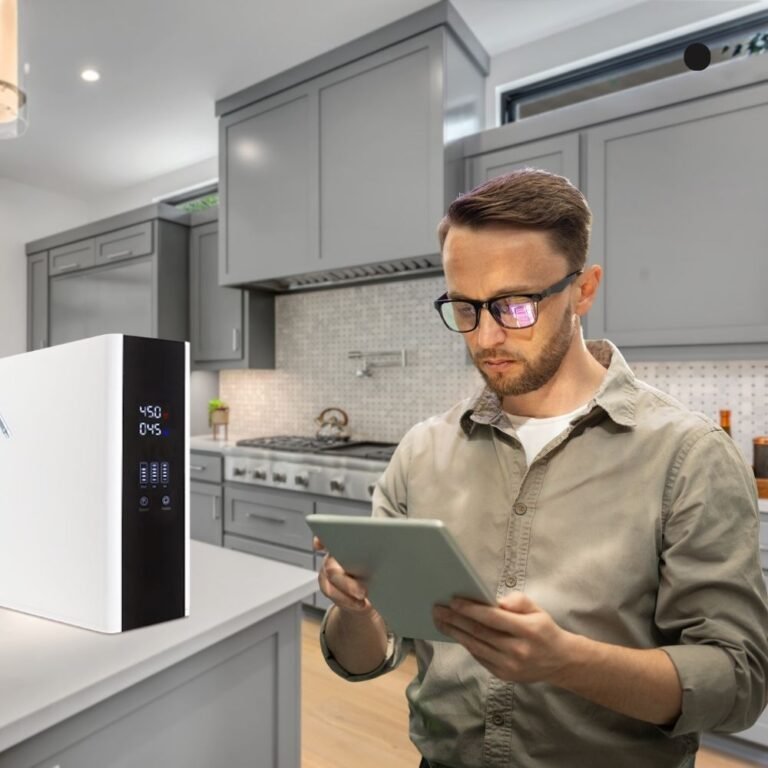Choosing Between Reverse Osmosis and Water Filtration: A Comprehensive Guide
When it comes to choosing a water filtration system for your home or business, there are many options available. Two of the most popular choices are reverse osmosis and traditional water filtration. Both systems have their benefits and drawbacks, and choosing the right one for your needs can be a daunting task. In this comprehensive guide, we will explore the differences between reverse osmosis and water filtration, and provide you with the information you need to make an informed decision.
What is Reverse Osmosis?
Reverse osmosis is a water filtration technology that uses a semi-permeable membrane to remove impurities from water. The membrane allows water molecules to pass through, but blocks larger molecules, such as dissolved salts, minerals, and other contaminants. Reverse osmosis systems typically include a pre-filter, membrane, and post-filter to ensure the water is thoroughly purified.
Reverse osmosis is an effective way to remove a wide range of impurities from water, including lead, arsenic, fluoride, and nitrates. It can also improve the taste and odor of water, making it a popular choice for people who are concerned about the quality of their drinking water.
What is Water Filtration?
Water filtration is the process of removing impurities from water using a variety of methods, such as activated carbon, ceramic filters, and UV light. These systems typically use a combination of filters to remove contaminants, and may also include a pre-filter to remove larger particles and sediment.
Water filtration is a popular choice for people who want to remove chlorine, sediment, and other common contaminants from their water. It is also an effective way to improve the taste and odor of water, and can be used in conjunction with other filtration systems, such as reverse osmosis, to further purify water.
Reverse Osmosis vs. Water Filtration
When it comes to choosing between reverse osmosis and water filtration, there are several factors to consider. Here is a breakdown of the differences between the two systems:
Effectiveness
Reverse osmosis is generally considered to be the most effective way to purify water. It can remove up to 99% of impurities, including dissolved salts, minerals, and other contaminants. Water filtration, on the other hand, is effective at removing common contaminants, such as chlorine and sediment, but may not be as effective at removing other impurities.
Cost
Reverse osmosis systems tend to be more expensive than traditional water filtration systems. They require a semi-permeable membrane, which can be costly to replace, and may also require professional installation. Water filtration systems, on the other hand, are typically less expensive and can be installed easily by homeowners.
Maintenance
Reverse osmosis systems require regular maintenance, including replacing the membrane and filters. Water filtration systems also require maintenance, but are generally easier to maintain than reverse osmosis systems.
Taste
Reverse osmosis systems can improve the taste and odor of water, making it a popular choice for people who are concerned about the quality of their drinking water. Water filtration systems can also improve the taste and odor of water, but may not be as effective as reverse osmosis systems.
Why Choose eWater for Reverse Osmosis?
If you are considering a reverse osmosis system for your home or business, eWater is a trusted provider of high-quality systems. Their systems are designed to remove a wide range of impurities from water, including lead, arsenic, fluoride, and nitrates. They also offer a range of maintenance and repair services to ensure your system is always operating at peak efficiency.
eWater’s reverse osmosis systems are also designed to be cost-effective, with low maintenance requirements and long-lasting components. They offer a range of systems to meet the needs of any home or business, from small under-sink systems to large commercial systems.
Conclusion
Choosing between reverse osmosis and water filtration can be a difficult decision, but it ultimately comes down to your individual needs and preferences. If you are looking for the most effective way to purify water, reverse osmosis may be the best choice for you. If you are concerned about cost and maintenance, water filtration may be a better option. Whatever your needs, eWater can provide you with the high-quality, reliable system you need to ensure your water is safe and pure.


